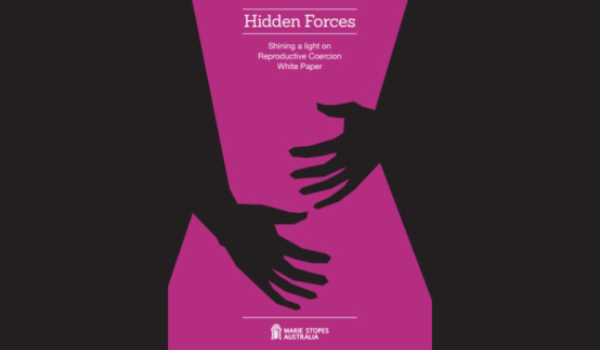
To coincide with the International Day for the Elimination of Violence Against Women and to kick off 16 Days of Action to end violence against women, Marie Stopes Australia launched this report.
Reproductive coercion is behaviour that interferes with the autonomy of a person to make decisions about their reproductive health. It includes any behaviour that has the intention of controlling or constraining another person’s reproductive health decision-making. Examples include:
- Sabotage of another person’s contraception
- Pressuring another person into pregnancy
- Forcing another person to have an abortion or continue a pregnancy
- Forcing a person into sterilisation.
It can occur on an interpersonal level within intimate partnerships or within families. It can also occur on a structural level where social, political, economic or cultural aspects can prevent people from making decisions about their reproductive health.
The report is the product of 20 months’ consultation and investigation into the issue that included 84 submissions from individuals and organisations across the health, religious, family violence, legal, political, media and academic sectors – and a roundtable of 50 stakeholders, two phases of public submissions, comment on a draft White Paper and targeted engagement of leading academics, healthcare professionals and psychosocial specialists. A number of women also came forward to bravely tell their stories, which has helped to provide context to this misunderstood and complex problem.
The report brings together existing research on the issue. It uncovers the links between family violence, intimate partner violence and sexual violence and provides a good reference point for the issue in Australia.
FULL REPORT: Hidden Forces: Shining a Light on Reproductive Coercion, by Marie Stopes Australia



